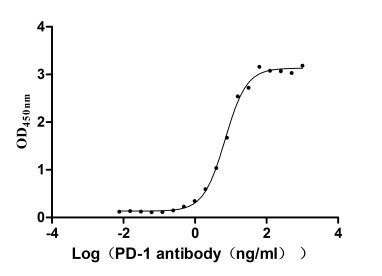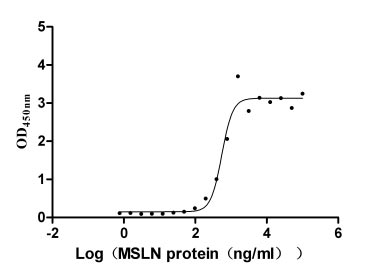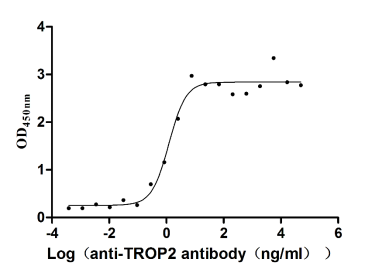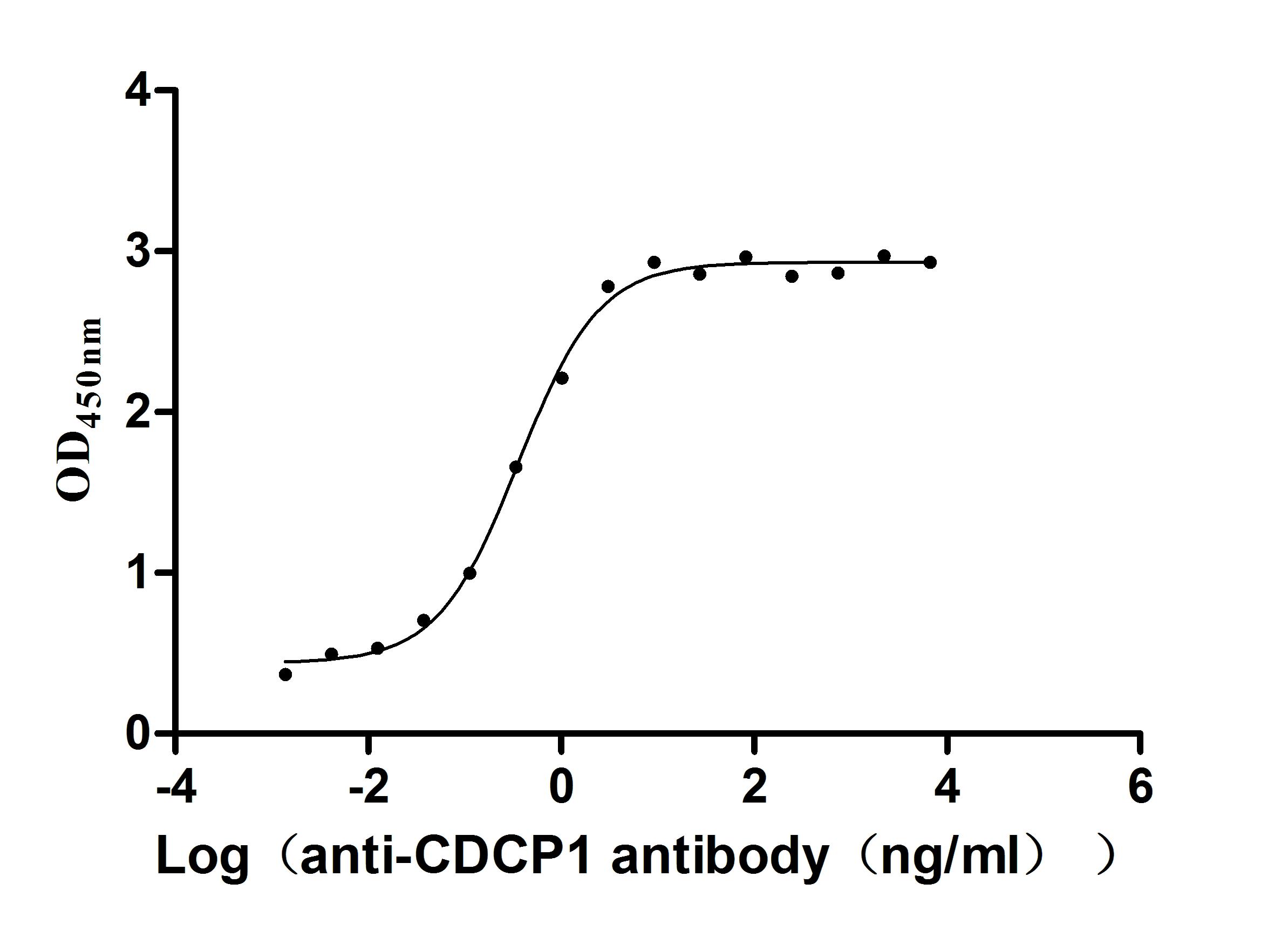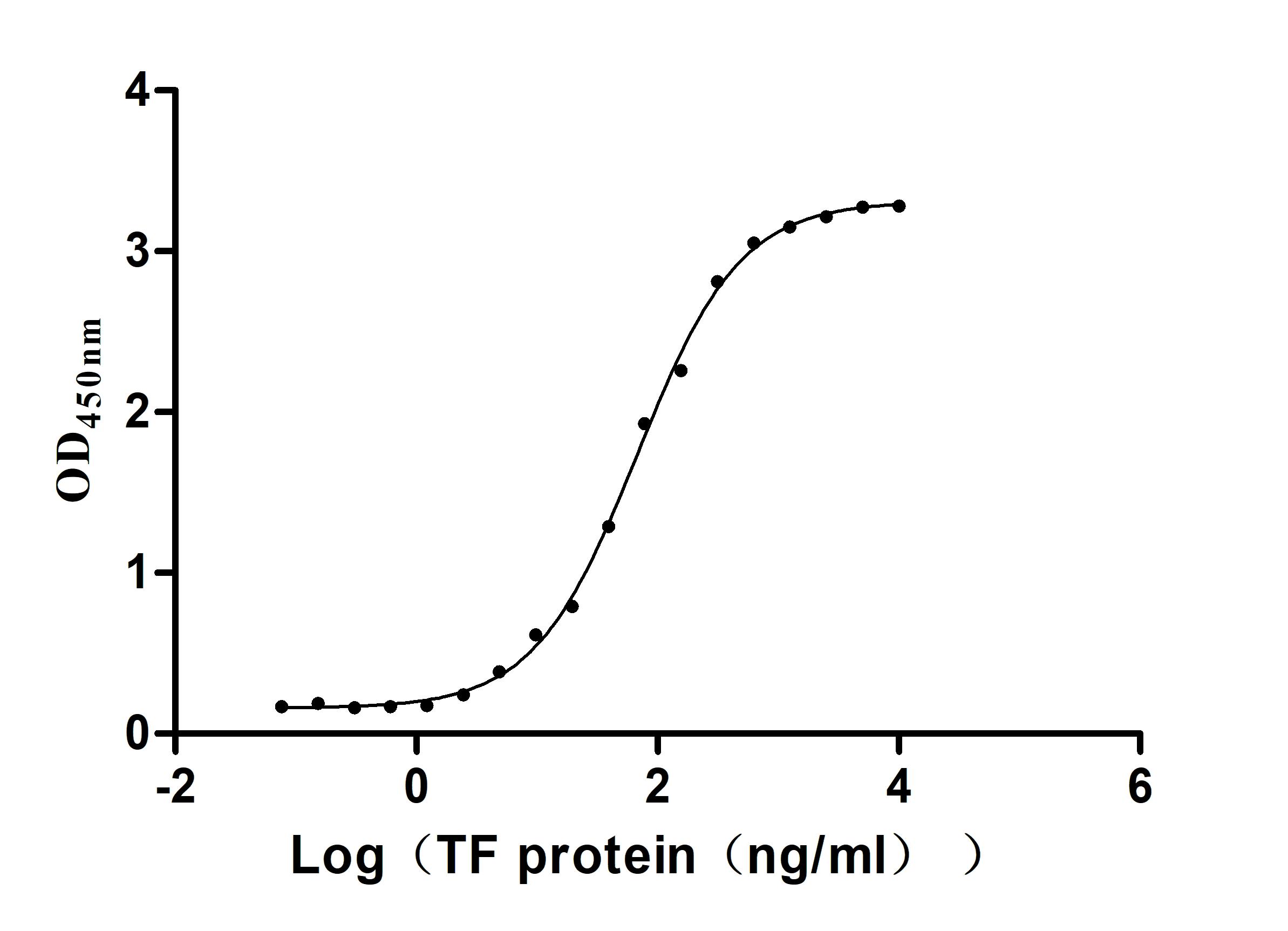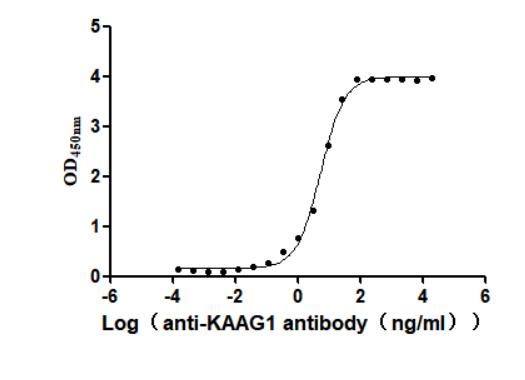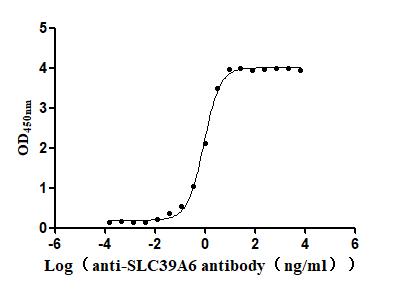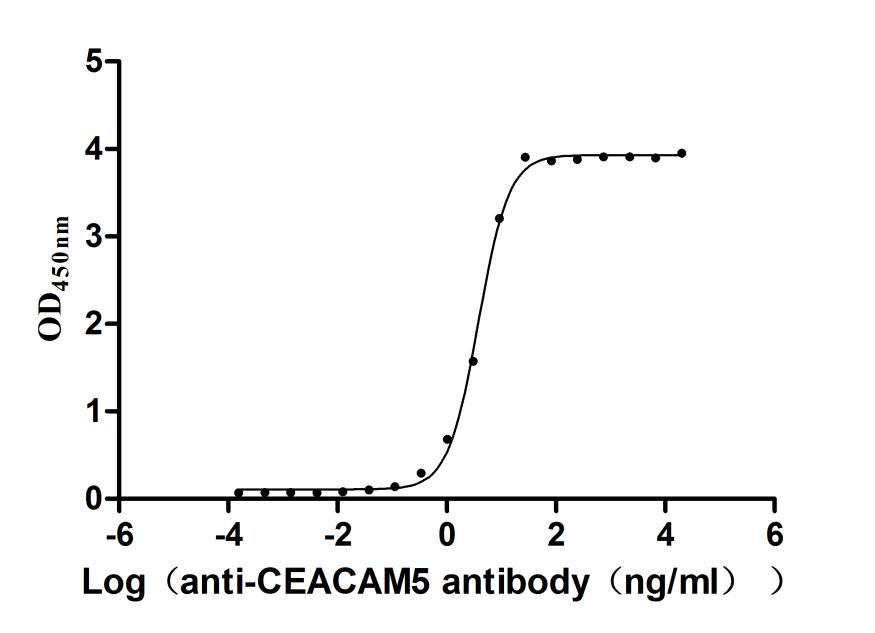Recombinant Human Inosine-5'-monophosphate dehydrogenase 1 (IMPDH1 IMPD1)
-
中文名稱:
-
貨號:CSB-YP2245HU
-
規格:
-
來源:Yeast
-
其他:
-
中文名稱:
-
貨號:CSB-EP2245HU
-
規格:
-
來源:E.coli
-
其他:
-
中文名稱:
-
貨號:CSB-EP2245HU-B
-
規格:
-
來源:E.coli
-
共軛:Avi-tag Biotinylated
E. coli biotin ligase (BirA) is highly specific in covalently attaching biotin to the 15 amino acid AviTag peptide. This recombinant protein was biotinylated in vivo by AviTag-BirA technology, which method is BriA catalyzes amide linkage between the biotin and the specific lysine of the AviTag.
-
其他:
-
中文名稱:
-
貨號:CSB-BP2245HU
-
規格:
-
來源:Baculovirus
-
其他:
-
中文名稱:
-
貨號:CSB-MP2245HU
-
規格:
-
來源:Mammalian cell
-
其他:
產品詳情
-
純度:>85% (SDS-PAGE)
-
基因名:IMDH1
-
Uniprot No.:
-
別名:Inosine-5'-monophosphate dehydrogenase 1; IMP dehydrogenase 1; IMPD 1; IMPDH 1; EC 1.1.1.205; IMPDH-I; IMPDH1 IMPD1
-
種屬:Homo sapiens (Human)
-
蛋白標簽:Tag?type?will?be?determined?during?the?manufacturing?process.
The tag type will be determined during production process. If you have specified tag type, please tell us and we will develop the specified tag preferentially. -
產品提供形式:Liquid or Lyophilized powder
Note: We will preferentially ship the format that we have in stock, however, if you have any special requirement for the format, please remark your requirement when placing the order, we will prepare according to your demand. -
復溶:We recommend that this vial be briefly centrifuged prior to opening to bring the contents to the bottom. Please reconstitute protein in deionized sterile water to a concentration of 0.1-1.0 mg/mL.We recommend to add 5-50% of glycerol (final concentration) and aliquot for long-term storage at -20℃/-80℃. Our default final concentration of glycerol is 50%. Customers could use it as reference.
-
儲存條件:Store at -20°C/-80°C upon receipt, aliquoting is necessary for mutiple use. Avoid repeated freeze-thaw cycles.
-
保質期:The shelf life is related to many factors, storage state, buffer ingredients, storage temperature and the stability of the protein itself.
Generally, the shelf life of liquid form is 6 months at -20°C/-80°C. The shelf life of lyophilized form is 12 months at -20°C/-80°C. -
貨期:Delivery time may differ from different purchasing way or location, please kindly consult your local distributors for specific delivery time.Note: All of our proteins are default shipped with normal blue ice packs, if you request to ship with dry ice, please communicate with us in advance and extra fees will be charged.
-
注意事項:Repeated freezing and thawing is not recommended. Store working aliquots at 4°C for up to one week.
-
Datasheet :Please contact us to get it.
相關產品
靶點詳情
-
功能:Catalyzes the conversion of inosine 5'-phosphate (IMP) to xanthosine 5'-phosphate (XMP), the first committed and rate-limiting step in the de novo synthesis of guanine nucleotides, and therefore plays an important role in the regulation of cell growth. Could also have a single-stranded nucleic acid-binding activity and could play a role in RNA and/or DNA metabolism. It may also have a role in the development of malignancy and the growth progression of some tumors.
-
基因功能參考文獻:
- We have found that the rs2278294 G allele exerts statistically significant inhibition on post-kidney transplant body mass index gain PMID: 30056902
- In our cohort of >300 familial cases of autosomal-recessive retinitis pigmentosa, PKRP004 is the only family harboring a mutation in IMPDH1. PMID: 25439607
- Expression of IMPDH mRNA after mycophenolate administration in male volunteers. PMID: 25105143
- A novel mutation, p.L270R in IMPDH1, was found to be retinitis pigmentosa-causing in one family. PMID: 23534816
- p53 has a novel function in regulating purine biosynthesis, aided by miR-34a-dependent IMPDH repression. PMID: 22301190
- IMPDH has a function in the retina, apparently independent of its enzymatic activity, mediated by retina-specific variants. PMID: 22183375
- IMPDH1 mutation is associated with retinitis pigmentosa. PMID: 21791244
- The mutation frequency of IMPDH1 gene of the Han population in Ganzhou city was similar as approximately 2-5% of the autosomal dominant retinitis pigmentosa cases among Americans of European origin and Europeans. PMID: 20238028
- resequenced IMPDH1 and IMPDH2 using DNA from 288 individuals from three ethnic groups and performed functional genomic studies of the sequence variants observed; identified 73 single nucleotide polymorphisms in IMPDH1, 59 novel PMID: 20718729
- Potential associations between the most frequent single nucleotide polymorphisms in both IMPDH genes and clinical outcome in renal transplant recipients. PMID: 20679962
- Inosine 5'-monophosphate dehydrogenase 1 haplotypes have a role in mycophenolate mofetil gastrointestinal intolerance in pediatric heart transplant patients PMID: 20649757
- The risk of subclinical acute rejection for recipients who cannot adapt in therapeutic drug monitoring of mycophenolic acid seems to be influenced by IMPDH1 rs2278293 polymorphism. PMID: 20136638
- In this small sample of pediatric heart transplant patients receiving MMF, ABCC2, IMPDH1 and IMPDH2 SNPs were associated with MMF GI intolerance and bone marrow toxicity. PMID: 20061166
- This mutant isoenzyme maps to human chromosome region 7q and has an amino acid substitution (arginine for proline). It is involved in the etiology of autosomal dominant retinitis pigmentosa in humans. PMID: 11875049
- A missense mutation in this isozyme causes human autosomal retinitis pigmentosa. PMID: 11875050
- A novel IMPDH1 gene mutation (Arg231Pro) was associated with a severe form of autosomal dominant retinitis pigmentosa. PMID: 15465556
- The most commonly reported Asp226Asn mutation was not found in the Japanese population, instead two novel mutations were found. These findings suggest that mutations of the IMPDH1 gene cause ADRP (autosomal dominant retinitis pigmentosa). PMID: 16038673
- Asp226Asn mutation is associated with a severe, early-onset form of retinal degeneration in members of this family. PMID: 16214101
- In this family with a mutation in IMPDH1, we found a specific phenotype with rod function affected more than cone function, foveal edema, and central retinal function preserved for a long period of time. PMID: 16272056
- Mutations in IMPDH1 account for approximately 2% of families with adRP, and de novo IMPDH1 mutations are also rare causes of isolated LCA (Leber congenital amaurosis). PMID: 16384941
- Identification of unique retinal isoforms supports the existence of a novel IMPDH1 function in the retina, one that is probably altered by disease-causing mutations. PMID: 16936083
- If IMPDH genetic variability contributes to azathioprine resistance in inflammatory bowel disease it does so infrequently. PMID: 17001353
- Mycophenolate mofetil up-regulates IMPDH-I and IMPDH-II mRNA in peripheral blood mononuclear cells. May predict acute rejection. PMID: 17713475
- C-terminal extension unique to the retinal isoforms blocks the nucleic acid binding site of IMPDH1, and thus uniquely regulates protein function within photoreceptors. PMID: 18295591
- RHO, PRPF31, RP1, and IMPDH1 were screened and causative mutations were identifiedin 4% of isolated and 2% of autosomal dominant forms of retinitis pigmentosa patients from India. PMID: 18552984
- IMP dehydrogenase type 1 associates with polyribosomes translating rhodopsin mRNA PMID: 18974094
顯示更多
收起更多
-
相關疾病:Retinitis pigmentosa 10 (RP10); Leber congenital amaurosis 11 (LCA11)
-
亞細胞定位:Cytoplasm. Nucleus.
-
蛋白家族:IMPDH/GMPR family
-
組織特異性:IMP type I is the main species in normal leukocytes and type II predominates over type I in the tumor.
-
數據庫鏈接:
Most popular with customers
-
Recombinant Human Programmed cell death protein 1 (PDCD1), partial (Active)
Express system: Mammalian cell
Species: Homo sapiens (Human)
-
Recombinant Human Mucin-16 (MUC16), partial (Active)
Express system: Mammalian cell
Species: Homo sapiens (Human)
-
Recombinant Human Tumor-associated calcium signal transducer 2 (TACSTD2), partial (Active)
Express system: Mammalian cell
Species: Homo sapiens (Human)
-
Recombinant Human CUB domain-containing protein 1 (CDCP1), partial (Active)
Express system: Mammalian cell
Species: Homo sapiens (Human)
-
Recombinant Human Serotransferrin(TF) (Active)
Express system: Mammalian cell
Species: Homo sapiens (Human)
-
Recombinant Human Kidney-associated antigen 1(KAAG1) (Active)
Express system: Baculovirus
Species: Homo sapiens (Human)
-
Recombinant Macaca fascicularis Zinc transporter ZIP6 isoform X1(SLC39A6),partial (Active)
Express system: Baculovirus
Species: Macaca fascicularis (Crab-eating macaque) (Cynomolgus monkey)
-
Express system: Mammalian cell
Species: Macaca mulatta (Rhesus macaque)


